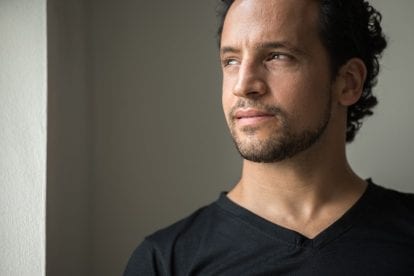Medically Supervised Detox Eases the Pain of Percocet Withdrawal

Percocet addiction is one of the most common forms of opioid addiction in the United States. Unfortunately, fear of withdrawal can often act as a barrier to recovery, keeping many trapped in a vicious cycle of drug abuse, unable to see a way out. But medically supervised detox within a residential addiction treatment program can ease the pain of withdrawal, minimizing or eliminating emotional and physical distress. However, detox is only the first step; true and lasting recovery requires comprehensive addiction treatment.
Robert doesn’t look the way you expect a drug addict to look. Even if you know drug addiction can affect anyone from any walk of life, it’s hard to imagine this accomplished, well-dressed, and soft-spoken man as an addict. But in his pocket are five little pills he keeps with him at all times. Like Robert himself, the pills don’t look like they have any relationship to addiction; pastel-colored and round-edged, they look more like sweets than a danger.
“Before I took Percocet, I had never done drugs in my life,” he says. “Now I need them just to get through the day.” Originally prescribed to ease post-surgical pain, Percocet controls Robert’s life completely. It’s the first thing he thinks of in the morning and the last thing he thinks of at night. He schedules his day around swallowing pale yellow pills and planning how to get more, although that’s become easier since he left behind reputable doctors and turned to so-called “pill mills.”
“It used to give me pleasure. After my surgery, I was just blissed out and it was such a seductive feeling. All my problems melted away,” he says. “Now that doesn’t happen anymore, but I can’t stop taking these things. When I try, it’s like I’m falling into a black hole. I know my addiction will eventually destroy me, but that seems far away. The pain of withdrawal is so immediate.”
Withdrawal as a Barrier to Recovery
The opioid epidemic ravaging communities across the United States has thrust painkiller addiction into the spotlight like never before. However, most media coverage currently focuses on drugs which have been relatively recently introduced for patient-administered use, like Fentanyl. Yet Percocet, which has been available for patient-administered use since the 1970s, remains one of the most commonly abused opioids in existence and has a long history of sparking addiction even in those who originally used it for therapeutic purposes. In fact, newer opioid painkillers were developed in part due to the ostensible promise that they didn’t share Percocet’s addictive qualities and would, therefore, offer less dangerous alternatives for relief of serious pain.
As such, Robert is far from alone, both in the origins of his Percocet addiction or its trajectory. And he certainly isn’t alone in his fear of discontinuation. Even those who desperately want to get clean so often feel trapped within their addictions, unable to reach recovery because it requires traveling through the pain of withdrawal. Those who do try to detox on their own often find themselves suffering severe anxiety, depression, stomach cramps, nausea, sweating, tremors, and sleep disturbances so unbearable that they feel they have no choice but to continue their Percocet use to restore themselves to normalcy. It’s a vicious cycle, one that can lead to chronic relapse and make you feel powerless to take the first, necessary steps toward recovery.
We're Here to Help. Call Today!
866-922-1350Easing the Pain of Withdrawal
Going through withdrawal alone can indeed be a frightening and painful experience. But it’s not the only way to get clean. For people suffering from Percocet addiction, medically supervised detox offers the best way to discontinue your drug safely within a supportive environment.
Medically supervised detox within a residential addiction treatment program provides a comfortable space for you to begin the withdrawal process using methods proven to minimize distressing symptoms. For people being treated for Percocet addiction, this typically includes the use of safer, longer-lasting opioids such as buprenorphine (Suboxone), which can dramatically reduce or even eliminate discomfort associated with withdrawal. Depending on your unique situation and preferences, a range of other medications may also be employed to ease the physical and emotional effects of Percocet discontinuation, including Clonidine, a non-opioid blood pressure medication that can reduce reliance on opioid medications.
Medication, however, is only part of the picture. High-quality, medically supervised detox programs provide 24-hour monitoring by detox specialists to ensure that your symptoms are closely observed, giving you the opportunity to provide continuous feedback about what you are experiencing. In turn, your treatment plan can be reevaluated on an ongoing basis to ensure that you are receiving the best possible care for your needs. Additionally, having the support of highly trained clinicians who understand what you are going through and provide the reassurance you need to cope with the psychological aspects of withdrawal can be a vital part of healing process. Simply knowing that you are surrounded by people who can and want to help you through this time can buoy your spirits and bring you great comfort.
The Need for Comprehensive Care
Withdrawing from Percocet is only the first step on the path to recovery; true healing doesn’t happen simply because you stop abusing drugs. Rather, you must seek to understand the roots of your addiction and gain the practical skills you need to uproot them once and for all. At the same time, it is essential to process the effects drug addiction has had on your life and your sense of self. This is often one of the most difficult parts of recovery. As Judith Newman writes in her article on Dr. Cheryl Karcher, a renowned dermatologist and recovering Percocet addict, “[Recovery has] been a lesson not just in breaking addiction, but in overcoming shame.” It is vital to have the right kind of support to guide you on this journey and make you feel safe enough to speak honestly about your experience while helping you imagine the kind of person you could be without drug addiction standing in your way.
Since my first conversation with Robert many months ago, he has completed an intensive residential addiction treatment program that has transformed his life. While his drug addiction never came through by looking at him, his newfound joy does. “I feel alive for the first time since my surgery four years ago,” he tells me. “I feel free. “
Alta Mira offers comprehensive treatment for people struggling with drug and alcohol addiction as well as co-occurring mental health disorders and process addictions. Contact us to learn more about our innovative programs and how we can help you or your loved one start the journey toward lasting wellness.





